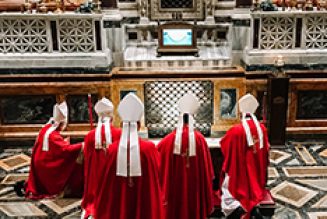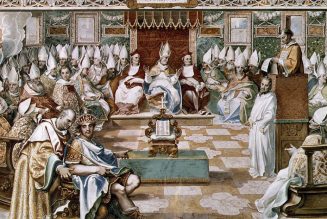
Wednesday’s oral argument in the Supreme Court was good news for the Little Sisters of the Poor and others hoping for a final resolution to the decade-long battle over the HHS mandate.
What exactly is the Sisters’ objection to the abortion pills mandate? As Little Sisters lawyer Paul Clement said: “Their objection essentially is to having their plans hijacked and being forced to provide those services through their own plan and plan infrastructure.” Calling this a “complicity-based objection,” Justice Elena Kagan added that she has understood “that to be your consistent position throughout the litigation.” She’s exactly right.
Also encouraging was Justice Stephen Breyer’s dismissal of the states’ claim that the Trump administration somehow violated the federal administrative procedures act.
Chief Justice Roberts, for his part, expressed a desire to bring the controversy to an end, and a few justices seemed frustrated that the Court’s 2016 Zubik ruling had not resolved the issue.
The Little Sisters appreciate their frustration.
The high Court told the government back then to explore an accommodation with the Sisters and other objecting groups. Obama’s HHS studied the issue for several months but, said in January 2017 that it could find no way around penalizing the Little Sisters. The Trump administration wasn’t so perplexed and exempted the Little Sisters and other religious objectors from the mandate. An exemption is the normal resolution to claims of religious burden under federal civil-rights laws like the Religious Freedom and Restoration Act (RFRA). It’s also a sensible solution to end many years of litigation.
The states suing the administration take a stingier view. Justice Samuel Alito repeatedly asked why it was wrong to exempt religious groups like the Little Sisters. After all, the government has long exempted churches from the mandate — even churches with no religious objections to contraception. Pennsylvania’s lawyer argued that the Obama administration did not have the authority under the Affordable Care Act even to exempt churches.
Some justices suggested that the Trump administration’s exemptions were too broad. Not so. The rules are clear and precise: To the extent you object to direct contraceptive coverage, you can use the Obama-era “accommodation” and to the extent you sincerely object to the “accommodation” — and only to that extent — exemptions are available to you.
Unsurprisingly, Justice Ginsburg expressed concern that protections for religious objectors would “toss to the wind” coverage she thinks women are supposed to receive under the ACA. Wednesday’s hearing once again made clear, however, that the states have no evidence — none — that any American has been unable to get coverage because of the exemption.
If working for an exempted employer was harmful to women, surely the states would have offered up some evidence of such harm by now. Why is there no smoking gun? Because, as President Obama’s solicitor general has said, an employee who wants contraceptive coverage but does not receive it from an exempt employer “will ordinarily obtain coverage through a family member’s employer, through an individual insurance policy purchased on an Exchange or directly from an insurer, or through Medicaid or another government program” (see page 65 of this brief).
The fact is that contraception is more widely available today than it was when the Obama administration hailed these plentiful alternatives. Indeed, the Trump administration has since expanded Title X to make it easier for any women who don’t have coverage because of an employer’s religious objection to secure contraceptives.
Justice Sonia Sotomayor downplayed the threat to the Little Sisters, asking if they weren’t exempt already because their benefits are provided by a “church plan.” But if forcing the Sisters to sign a “church plan” form was so meaningless, why have the Obama Administration and now Pennsylvania and New Jersey continued to wage a war against these nuns? The fact is that the Sisters’ signature authorizes paying secular companies who work with their church plan — like non-religious pharmacy benefits managers — to use the plan to distribute the contraceptive drugs over the Sisters’ objections.
In the end, the only real question is not whether the justices will rule in favor of the Little Sisters. It’s how the justices will rule in their favor and recognize the religious exemption to which they are clearly entitled. Will they opt for a narrow ruling that guarantees that everyone will keep litigating this issue for another decade? Or, will the Supreme Court rule in a way that embraces the commonsense religious exemption and brings an end to this unnecessary fight?
Congress decided more than a quarter century ago that providing religious exemptions was precisely the kind of “sensible balancing” that is needed to protect diversity in our religiously pluralistic land. Here’s hoping the Supreme Court follows its bipartisan lead.







